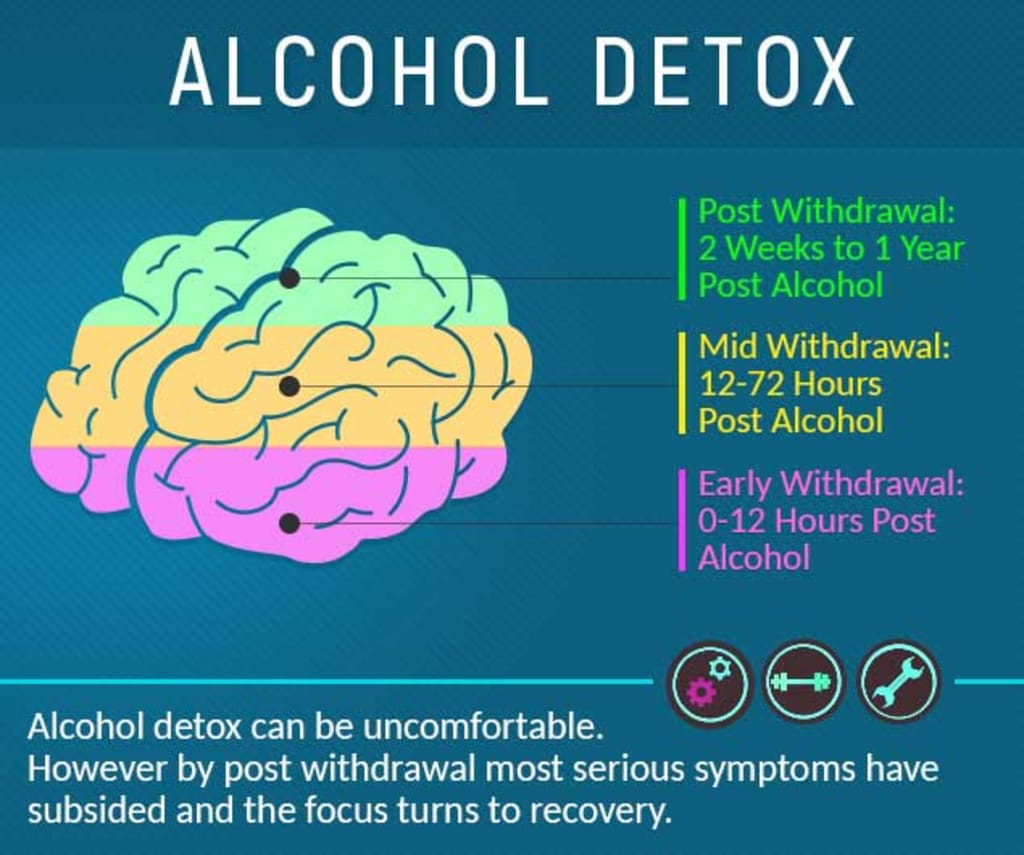
Trying to quit alcohol can be a very difficult task. Physical and psychological withdrawal symptoms can occur as you begin to detoxify. These symptoms can include depression, irritability, fatigue, trembling, sweating, muscle pain, nausea, diarrhea, and insomnia. However, the good news is that there are options that can help you with this process. These options include an alcohol detox program, which is one way that you can get your body back to normal.
Inpatient vs outpatient
Choosing between an inpatient and outpatient alcohol detox program is a decision that should be considered carefully. There are many differences between the two. The decision should be based on your specific needs.
An inpatient treatment program involves daily visits to a clinic for treatment. The facility is usually staffed around the clock. Patients may take advantage of a number of services, including group counseling, 12-Step meetings, and medication management. This type of treatment is most useful to those with severe or complex problems.
Outpatient treatment programs are designed for individuals with less serious problems. They may still have responsibilities at home or work. These programs are also less expensive than inpatient care.
An outpatient program may require a few hours of commitment per day. They may not be able to provide 24-hour care, and some may not offer multifaceted recovery programs.
Depending on the program, there may be a large emphasis on prevention and education. The program may be designed to help clients transition to a more independent lifestyle. It may also provide 12-Step meetings and relapse prevention education.
Physical withdrawal symptoms
Symptoms of physical withdrawal from alcohol are quite uncomfortable, but they can be life-threatening without treatment. The first few days after quitting drinking are the most dangerous. This is because alcohol is a central nervous system depressant. It can alter the production of neurotransmitters in the brain, causing withdrawal.
Symptoms of alcohol withdrawal can include headaches, insomnia, nausea, tremors, and sweating. Some symptoms may last for weeks. The intensity of the symptoms depends on the length and amount of alcohol used.
Alcohol withdrawal can also cause hallucinations and seizures. Over five percent of people suffering from alcohol withdrawal will experience seizures. This is called Delirium Tremens (DTs). The condition may be life-threatening.
Other symptoms of alcohol withdrawal may include sweating and fever. Doctors may prescribe anticonvulsants to reduce the severity of the symptoms. In addition, medications may be prescribed to treat vitamin deficiencies or electrolyte imbalances.
In severe cases of alcohol withdrawal, it may be necessary to seek inpatient treatment. This treatment can include a benzodiazepine to help the brain adjust to the absence of alcohol. In addition, doctors may prescribe electrolyte corrections and multivitamin fluids. They may also check the patient's vital signs and conduct a physical examination.
Co-occurring mental health issues
Almost half of all people with a mental health diagnosis also have a substance use disorder. The combination of the two can make recovery difficult, but it is possible. The right treatment can help.
The Substance Abuse and Mental Health Services Administration (SAMHSA) recommends integrated care for people with co-occurring mental health and substance use disorders. This type of treatment can improve symptom management, reduce barriers to treatment, and increase recovery.
Treatment is designed to help you develop healthy coping skills, strengthen your relationships, and learn how to deal with life's challenges. These are all skills that you can use to achieve lasting sobriety. It can also help you avoid relapse.
There are many different kinds of treatment for co-occurring mental health and substance abuse disorders. One of the best is inpatient rehab. This type of treatment provides a high level of care and individual treatment plans. It also includes therapy, counseling, and group support. The treatment program also teaches clients how to avoid substance abuse triggers.
Mayflower Detox for alcohol in MA
Whether you are a veteran of addiction or just beginning your journey, detoxing at a professional facility is the safest way to begin. Withdrawal symptoms associated with alcohol and drugs can be extremely uncomfortable. While you may have experienced these symptoms before, they can be unpredictable and may last days. A detox center can provide you with extra support, including medications to reduce the severity of withdrawal.
Choosing to seek help at an addiction treatment center in MA is an important decision. Not only will it provide you with life-changing help, but it is safer than trying to detox on your own. Detox centers in MA monitor vital signs and offer medications to lessen the intensity of withdrawal symptoms.
Alcohol and drug detox in Massachusetts can be a dangerous process. It can cause seizures and hallucinations if you stop drinking cold turkey. It is important to seek help in a safe and reputable facility, like Mayflower Detox.





Comments
There are no comments for this story
Be the first to respond and start the conversation.